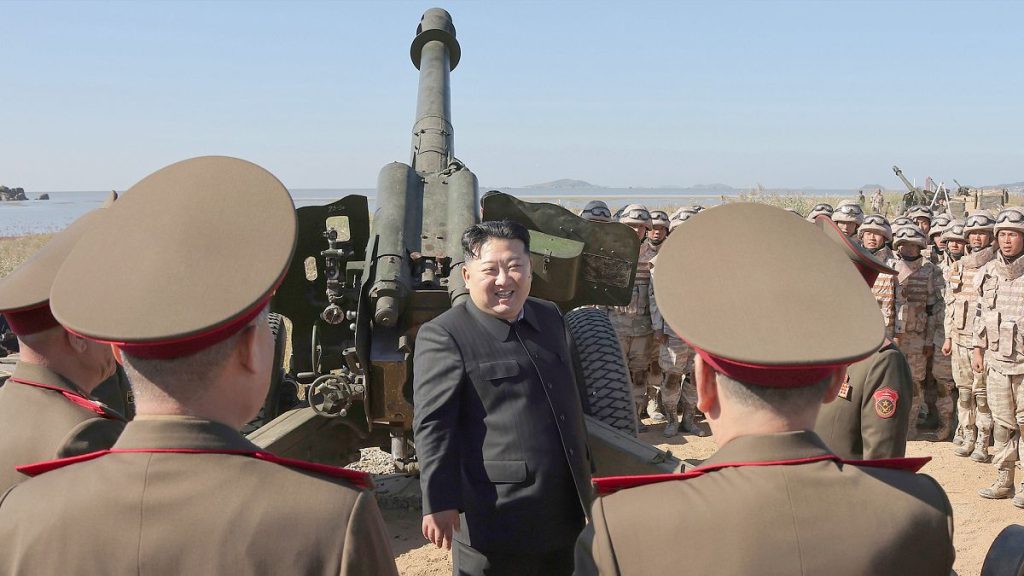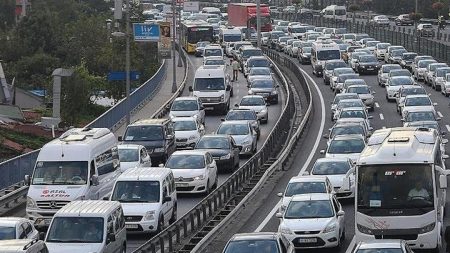Ukrainian President Volodymyr Zelenskyy accused North Korea of sending arms and soldiers to support Russian troops during his national address on Sunday. Zelenskyy emphasized the importance of developing relations with western partners to counter this opposing alliance and increase pressure on Russia. He stated that this support from North Korea could potentially make the situation more challenging for Russia and prevent a larger war. Zelenskyy reiterated his commitment to his “victory plan” in hopes of bringing an end to the conflict and ensuring peace in Ukraine.
Since the launch of Russia’s full-scale invasion of Ukraine in early 2022, North Korean leader Kim Jong-un has become one of Putin’s key allies. Reports emerged on October 11 that North Korean military engineers were allegedly deployed to assist Russia in targeting Ukraine with ballistic missiles. There were also claims that North Korean troops were actively participating in the fighting in Ukraine. The Kremlin dismissed these allegations as “fake news,” with Putin’s spokesperson, Dmitry Peskov, denying any involvement of North Korean forces in the conflict. Despite these denials, Washington claimed that more than 16,000 shipping containers containing munitions had been dispatched by Pyongyang to support Russia.
Zelenskyy’s statements regarding North Korean support for Russian troops highlight the complex and interconnected nature of global alliances and conflicts. The involvement of North Korea in the ongoing conflict in Ukraine adds a new dimension to the already volatile situation. Zelenskyy’s call for increased support from western partners underscores the importance of unity and collaboration in countering external threats and maintaining peace in the region. The potential consequences of North Korean involvement in the conflict raise concerns about the escalation of tensions and the impact on regional stability.
The allegations of North Korean military support for Russian troops have sparked international attention and debate. The purported deployment of North Korean soldiers and weapons to assist Russia in its actions in Ukraine has raised questions about the extent of global cooperation and the role of different countries in international conflicts. Despite denials from the Kremlin, the claims made by Ukrainian and South Korean officials point to the complexity of the situation and the challenges of navigating alliances and rivalries on the global stage. The accusations of North Korean involvement serve as a reminder of the interconnectedness of world affairs and the need for diplomatic solutions to prevent further escalation.
Zelenskyy’s emphasis on the importance of strengthening Ukraine’s relations with western partners in response to North Korean support for Russian troops underscores the significance of international cooperation in addressing complex security challenges. The Ukrainian leader’s commitment to his “victory plan” reflects his determination to find a peaceful resolution to the conflict and ensure the safety and well-being of his people. As tensions continue to escalate in the region, Zelenskyy’s efforts to mobilize support from allies and engage in diplomatic efforts highlight the importance of strategic leadership and effective communication in times of crisis. By calling for increased pressure on Russia and preventive measures to avoid a larger war, Zelenskyy demonstrates his commitment to defending Ukraine’s sovereignty and securing a lasting peace.















